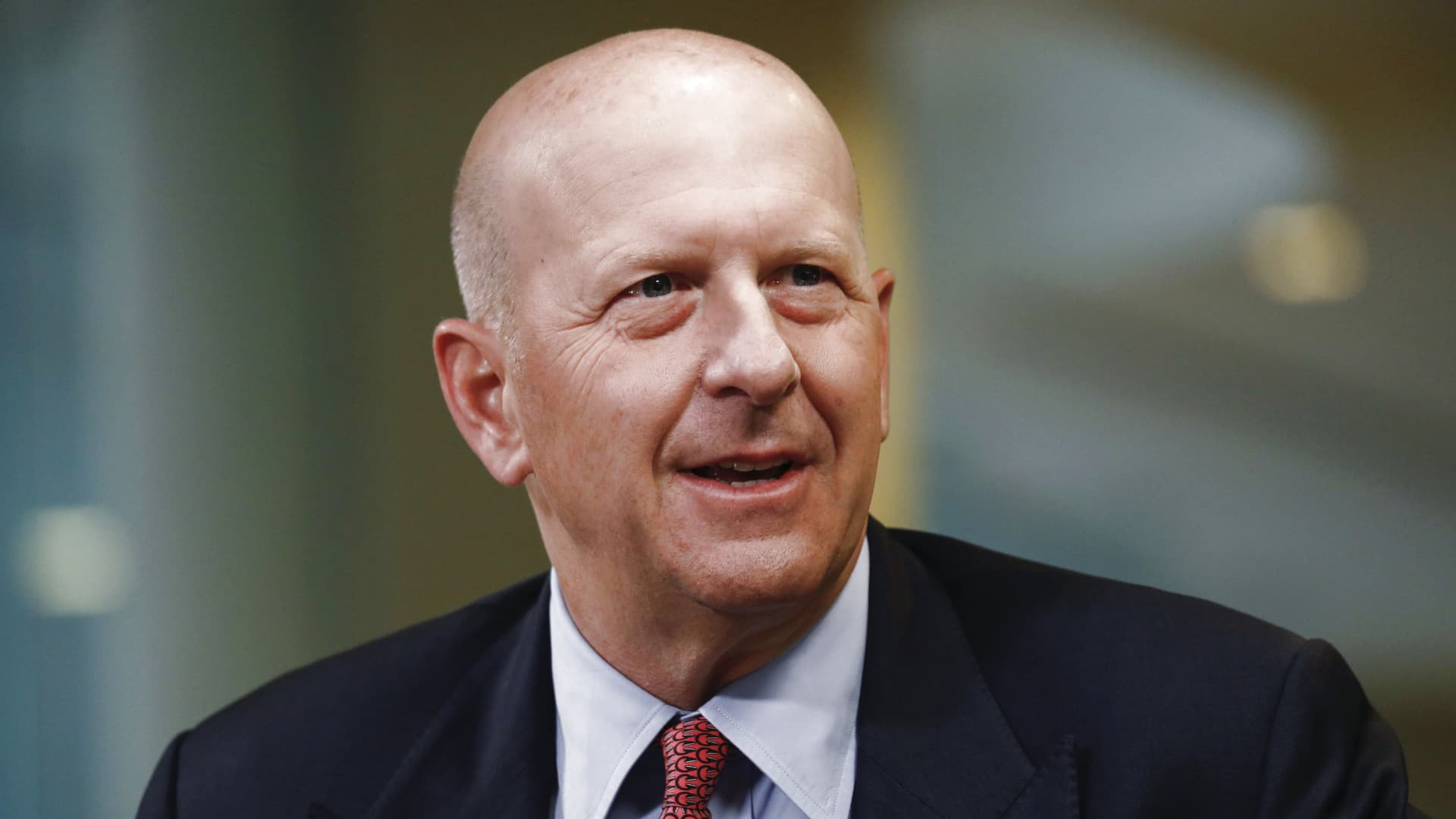Goldman Sachs posted third-quarter results Tuesday that topped analysts’ expectations for profit and revenue on better-than-expected trading results.
Here are the numbers:
- Earnings: $8.25 a share vs. $7.69 per share estimate according to Refinitiv
- Revenue: $11.98 billion vs. $11.41 billion estimate
The company said profit fell 43% to $3.07 billion, or $8.25 a share, exceeding the $7.69 estimate of analysts surveyed by Refinitiv. Revenue slipped 12% to $11.98 billion, beating estimates by more than $500 million. Goldman’s revenue decline was expected after last year’s IPO boom cooled down this year.
Shares of the bank were up more than 4% in morning trading.
Goldman CEO David Solomon said the results show the company’s “strength, breadth and diversification” and officially announced a corporate reorganization that had been reported on earlier this week.
“Today, we enter the next phase of our growth, introducing a realignment of our businesses that will enable us to further capitalize on the predominant operating model of One Goldman Sachs,” Solomon said. “We are confident that our strategic evolution will drive higher, more durable returns and unlock long-term value for shareholders.”
Goldman’s fixed income traders generated $3.53 billion in revenue, a 41% jump from the year-earlier period and roughly $500 million more than analysts had anticipated, as traders took advantage of heightened client activity in bonds and currencies amid choppy markets.
Equities traders brought in $2.68 billion in revenue, a 14% drop from the year earlier that edged out the $2.59 billion estimate.
The strong trading results more than offset a miss in investment banking, where revenue plunged 57% to $1.58 billion, below analysts’ $1.84 billion estimate.
The bank’s other divisions, asset management and consumer & wealth management, also topped expectations.
Asset management revenue fell 20% to $1.82 billion on lower gains from private equity stakes, but that still exceeded expectations for $1.65 billion in revenue.
Consumer & wealth management revenue rose 18% to $2.38 billion, topping the $2.19 billion estimate, helped by growing credit card balances and rising interest rates.
The results were consistent with Goldman’s competitors in the quarter. While rivals including JPMorgan Chase and Morgan Stanley posted sharp declines in third-quarter investment banking revenue, better-than-expected fixed income results amid volatile markets helped buoy their institutional businesses.
An open question is how long the bank’s consumer business will continue to lose money, a sore subject among investors because of its drag on the company while the stock has been depressed.
Solomon’s corporate reorganization will combine the bank’s four main divisions into three, according to people with knowledge of the plan. The move splits Goldman’s consumer operations and puts the parts into two of the new businesses, the people said.
The new divisions will be called Asset & Wealth Management, Global Banking & Markets, and Platform Solutions, Solomon said Tuesday in a staff memo obtained by CNBC. The changes will take effect in December, he said.
Solomon’s memo made little mention of the firm’s Marcus business except to say that it was now tucked into the larger Asset & Wealth Management operations.
During a conference call with analysts, Solomon announced a pivot in his retail finance strategy, saying the bank will now focus on existing Marcus customers and potential customers available through workplace and personal wealth channels, “rather than seeking to acquire customers on a mass scale.”
The change will help Goldman “rationalize” spending on future products and customer acquisition costs, he said.
Partnerships with tech giant Apple, which include a credit card and new savings account, have been expanded and extended through the end of the decade, Solomon said.
The company will hold an investor day in late February, he added.
Goldman shares trade for the lowest price-to-tangible book value ratio among the six biggest U.S. banks except for Citigroup, a situation that Solomon surely wants to address.
The bank’s shares have fallen almost 20% this year through Monday, compared with the 26% decline of the KBW Bank Index.
Last week, JPMorgan and Wells Fargo topped expectations for third-quarter profit and revenue by generating better-than-expected interest income. Citigroup also beat analysts’ estimates, and Morgan Stanley missed as choppy markets took a toll on its investment management business.
